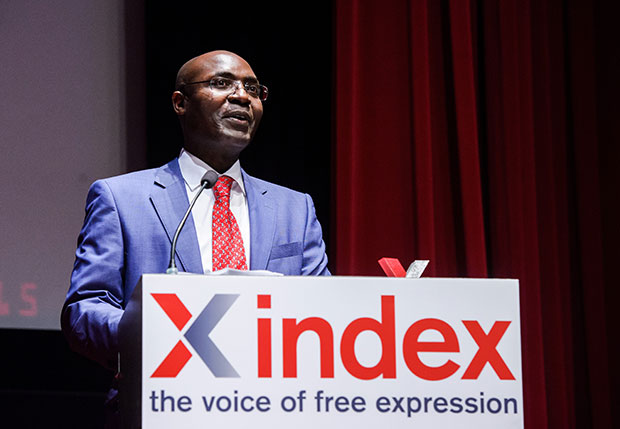
Journalist and human rights activist Rafael Marques de Morais (Photo: Alex Brenner for Index on Censorship)
The trial of Rafael Marques de Morais, the investigative journalists who has exposed corruption and serious human rights violations connected to the diamond trade in his native Angola, will restart on 14 May. He was initially set to appear in court again on 23 April, but was informed of the postponement late in the evening on 22 April.
Marques de Morais is being sued for libel by a group of generals in connection to his work. The parties will be negotiating ahead of 14 May, to try and find some “common ground”, Marques de Morais told Index.
“In the interest of all parties and for the benefit of continuing work on human rights and for the future of the country, it is a very important step to be in direct contact,” he said.
“Rafael’s crucial investigations into human rights abuses in Angola should not be impeded by this dialogue. Index stresses the importance of avoiding any form of coercion,” said Index on Censorship CEO Jodie Ginsberg.
Marques de Morais originally faced nine charges of defamation, but on his first court appearance on 23 March was handed down an additional 15 charges. The proceedings were marked by heavy police presence, and five people were arrested. This came just days after he was named joint winner of the 2015 Index Award for journalism.
The case is directly linked to Marques de Morais’ 2011 book Blood Diamonds: Torture and Corruption in Angola. In it, he recounted 500 cases of torture and 100 murders of villagers living near diamond mines, carried out by private security companies and military officials. He filed charges of crimes against humanity against seven generals, holding them morally responsible for atrocities committed. After his case was dropped by the prosecutions, the generals retaliated with a series of libel lawsuits in Angola and Portugal.
“Despite major differences, there is a willingness to talk that is far more important than sticking to individual positions. But this cannot impede work on human rights, freedom of the press and freedom of expression,” Marques de Morais added.
This article was posted on 23 April 2015 at indexoncensorship.org




